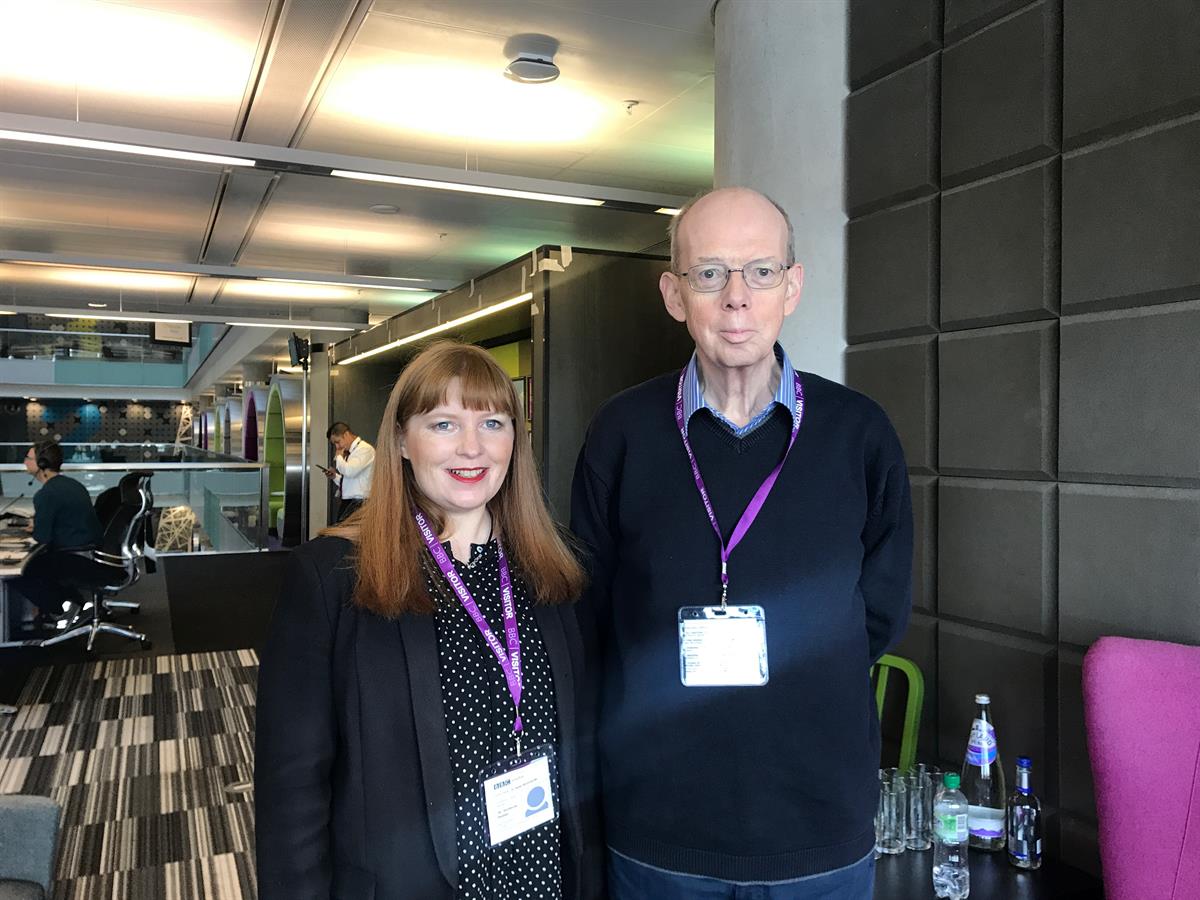Pioneering Treatment Offers Hope To Terminal Blood Cancer Patients

Adult patients with lymphoma are amongst the first in the world to benefit from a pioneering treatment that genetically reprogrammes their immune system to fight cancer. Doctors at King’s College Hospital in London have confirmed that the CAR T therapy (chimeric antigen receptor T-cell) has been shown in trials to cure some patients, even those with advanced cancers.
King’s has become the first hospital in the UK to use the newly approved CAR T therapy to treat adult NHS patients with lymphoma. CAR T therapy is a complex immunotherapy that is personally developed for each individual patient.
Currently, CAR T therapy is being used on selected patients at King’s with a recurrence of lymphoma. One of the first patients to receive the treatment was 62-year-old Mike Simpson, from Durham. Mike is under the care of King’s and received treatment in the LIBRA funded Ambulatory Care Unit.
The married father-of-two was diagnosed with stage 4a Diffuse Large B-Cell Lymphoma, a fast-growing form of blood cancer, in 2015 after discovering a lump in his neck. He underwent chemotherapy and radiotherapy at his local hospital and went into remission. Ten months later, he relapsed and was treated again. After going into remission for a second time, the cancer returned.
Mike said, “In October 2018, I began experiencing back pain, stomach discomfort and severe vomiting so I went for more tests and was given the news the cancer was back. Dr Wendy Osborne and colleagues at the Northern Centre For Cancer Care (NCCC), Freeman Hospital Newcastle, explained CAR T therapy, which looked very promising so when I was given the opportunity to have the therapy at King’s I jumped at it, and I am very grateful the team at NCCC put me forward.”
Mike visited King’s in late 2018 for pre-assessment and had his cells harvested in early January 2019. While they were sent to the USA for modification, Mike was given ‘holding’ treatment to ensure his lymphoma remained under control as this process takes four weeks. Once the CAR T cells were manufactured, he was given conditioning chemotherapy to prepare for the infusion of modified T cells, which he received in February.
Mike said, “The team at King’s explained all about the treatment and possible side effects. Despite this, it still came as a big shock to me and my family when I became unwell a few days after the infusion. It was no walk in the park. I spent almost a week in intensive care and when I was well enough to be moved back to the ward, I had to re-learn basic tasks such as climbing stairs. I was fortunate to have the support of my wife and children, who had to watch me go through the changes hoping all the time they would be temporary.”
Despite the initial adverse reaction to the therapy, Mike has responded well to the treatment and is working towards remission. He is back at home, spending time with his young grandchildren and regaining his strength. Mike is hopeful for the future, including a return to work, but recognises how lucky he is. “I’m incredibly grateful for being given the opportunity to have this therapy as I know it’s a costly, one-time treatment. I describe it as my L’Oreal treatment… because I’m worth it,” he joked.
Dr Victoria Potter, Consultant Haematologist and Director of Stem Cell Transplantation at King’s, said, “In cases such as Mike`s, CAR T therapy is a last resort when other treatments have failed. Although it does not work for everyone, from what we have observed in clinical trials this type of personalised medicine offers real hope for lymphoma patients who otherwise would have limited options. We are very hopeful this treatment will be a game-changer for our patients.”
The NHS is providing CAR T therapies for children and young people with B cell acute lymphoblastic leukaemia, and adults with diffuse large B-cell lymphoma and primary mediastinal B-cell lymphoma in England.
The official list price for this CAR-T therapy, called Yescarta, is more than £280,000 per patient.
NHS England and the pharmaceutical company Gilead Sciences have agreed a deal, but how much this is costing remains confidential.
Simon Stevens, chief executive of NHS England, said: “CAR-T shows huge promise and it is fantastic to see that patients in the NHS are among the first in the world to benefit.
“The start of this treatment marks the beginning of a new era of personalised medicine.”
Back to all posts
